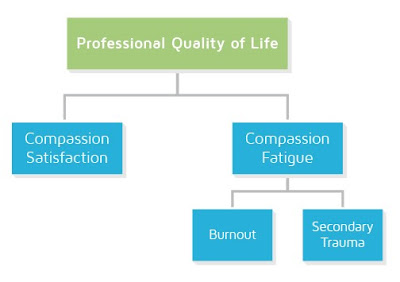Compassion fatigue is defined as the cumulative physical/emotional/psychological effects of continual exposure to traumatic or distressing stories/events when working in a helping capacity where demands outweigh resources. The two largest contributing factors are:
1) high volume work load, 2) exposure to client distress and trauma.
2) exposure to client distress and trauma.
How do you avoid burnout? Well, the easy answer to say is keep your life in balance, but not so easy to do. Work and family demands, children, financial stressors all contribute. However, exposure to conflict, listening to clients that are angry, depressed who make demands and expect you to fix all of their problems can wear you out creating a series of other consequences. What happens to sleep, longer work hours, less time with friends, plan, fun or nutrition? Some waring signs of compassion fatigue:
-
excessive workloads the encroach on personal time,
-
Feeling exhausted all the time; nightmares,
-
becoming pessimistic, irritable and losing faith in humanity,
-
becoming generally unhappy and unproductive and no longer feeling on top of your game.
For a more extensive self-evaluation, click on the link below.



